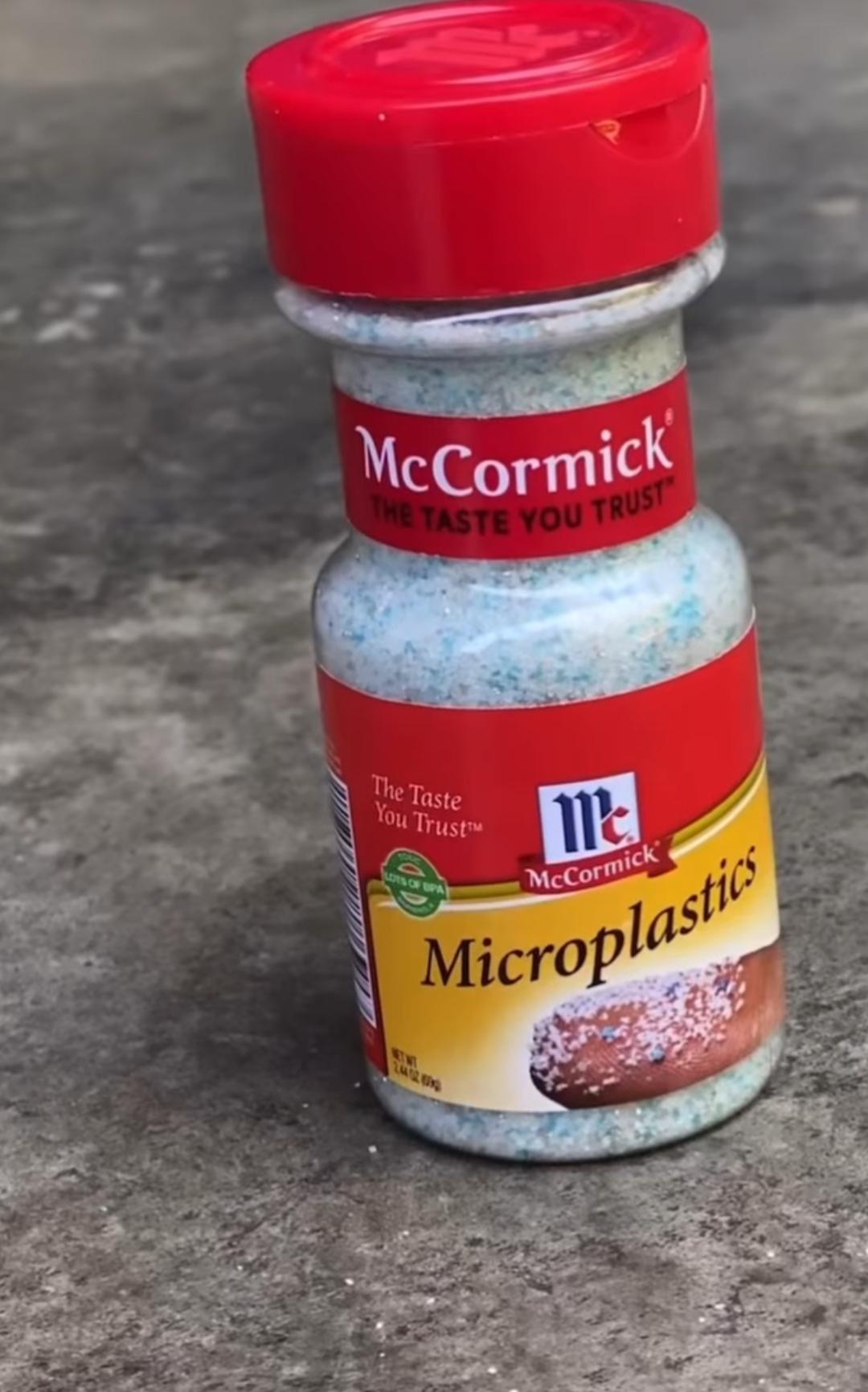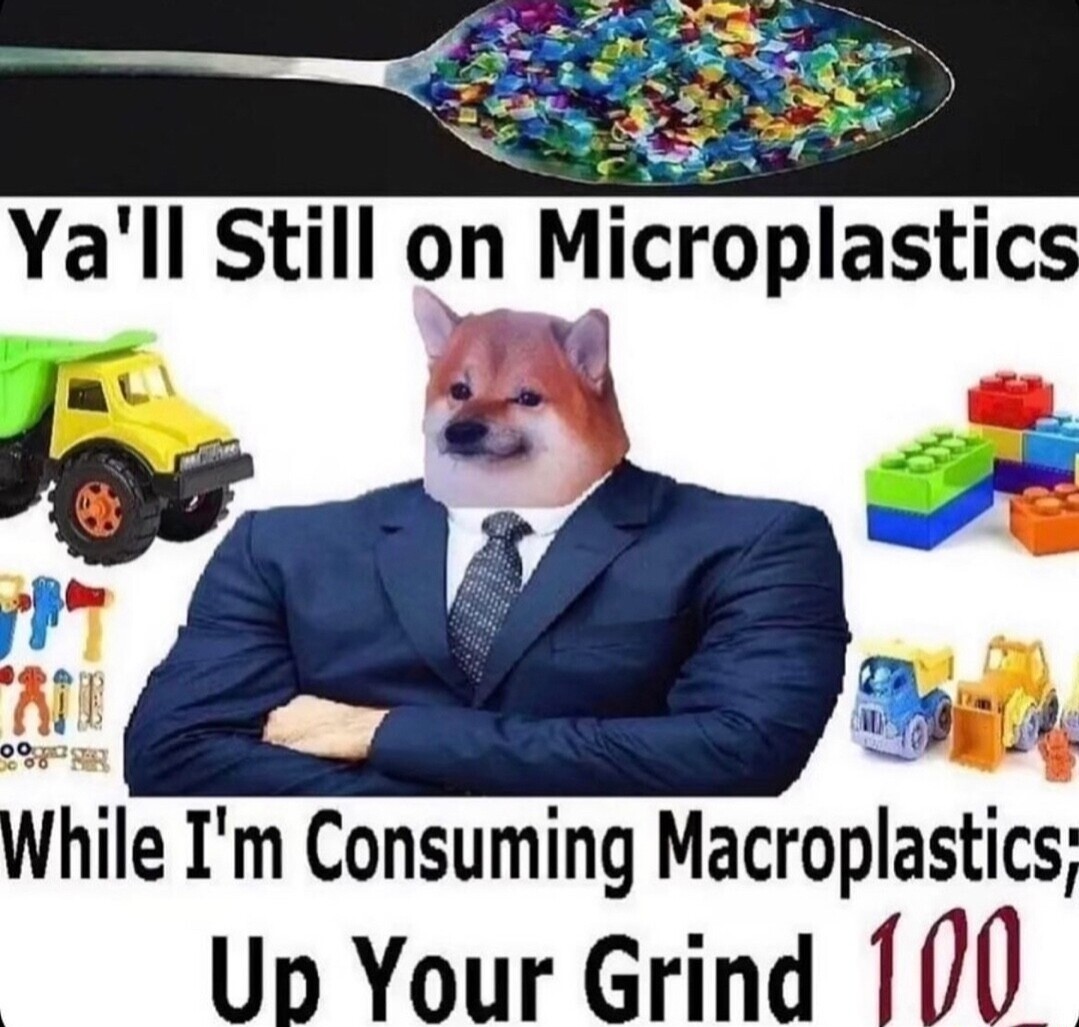Single-use plastics should have been banned 10-15 years ago and we should be phasing out the rest of them now.
science
A community to post scientific articles, news, and civil discussion.
rule #1: be kind
They should have been banned in the early 80's when we found out how dangerous they are. Humans refuse to be inconvenienced though.
How dangerous are they? I see lots of articles about them being in everything but not much about what they actually do when they get inside you.
We don't know yet, and that's a little scary.
Blame petrochemical/oil companies.
Plant based biodegrade plastic exist...
Yes, but they cost a few pennies more. So that's not possible.
(☞゚ヮ゚)☞
(╯°□°)╯︵ ┻━┻
That’s why “recycling” is so popular I think. The industry knew that there would be pushes against plastic, and came up with an ingenious way to make you the one “responsible” while also selling you the fairy tale that we could just reuse the stuff forever. People feel good about themselves for putting stuff in the blue bin, without realizing the near certainty that it’s going to end up in the landfill too.
It's not a question of convenience. Plastics require several magnitudes less energy to produce goods than alternatives like metal, glass and wood. If we stop using plastics today our emissions will sky rocket so high the planet will start boiling.
We need to force governments to recycle better, because a lot of plastics are completely ignored in many countries.
Here's a quick example. My hobby is 3D printing and I live in the UK. The most common plastic in this hobby is PLA. It is both sustainable and recyclable. But Britain doesn't recycle it as part of household waste. There are companies here which offer PLA recycling, but they require at least 50L worth of PLA to pick it up from you. I use about 5kg per year, so even if I throw away everything I print, I will need 10 years to fill the recycling order. But since I only want to throw away failed attempts, it will take a lifetime to fill it.
If my council would start using hot composters instead of cold ones I could at least throw my PLA waste into compost with food and it would decrease into lactic acid, but the government doesn't give a shit, so all my plastic goes into landfill.
The plastic products are generally for convenience. I'm not talking about the production.
Nope.
Nearly half (44 percent) of the identified microplastics were fibers, while a third (30 percent) were plastic fragments. This is in tune with other studies that have shown plastic fibers from clothes and other textile products are the most prevalent form of microplastic in the environment.
More important than single-use plastics seems to be synthetic clothing.
Quality synthetic clothing is actually great. You can wear the same t-shirt 10 years in a row and it will look and feel like a new one. But cheap ones tend to fall apart faster than cotton variants.
You know what else lasts 10 years? Quality cotton t-shirts.
They don't really.
21st century seasoning
Actually 20th, if the scene from The Graduate was any indication.

Lmao I’m stealing that
... there is no way 10% of our food doesn't contain microplastics
Ugh, I hate it when my plastic has meat in it.
Y'all need to up your game

c/lego
No, stop grinding your plastics.
I fucking hate plastic 🥲
Well stop eating it you dummy 😊
:(
I keep hearing George Carlin's old comedy routine about how we evolved because Mother Earth needed plastic for reasons, and now that we've made enough to last a very long time, she can get rid of us...
Yes. Microplastics is slower gray goo.
How is it not 100%? I thought that there wasn't any source of water on Earth that doesn't have microplastics.